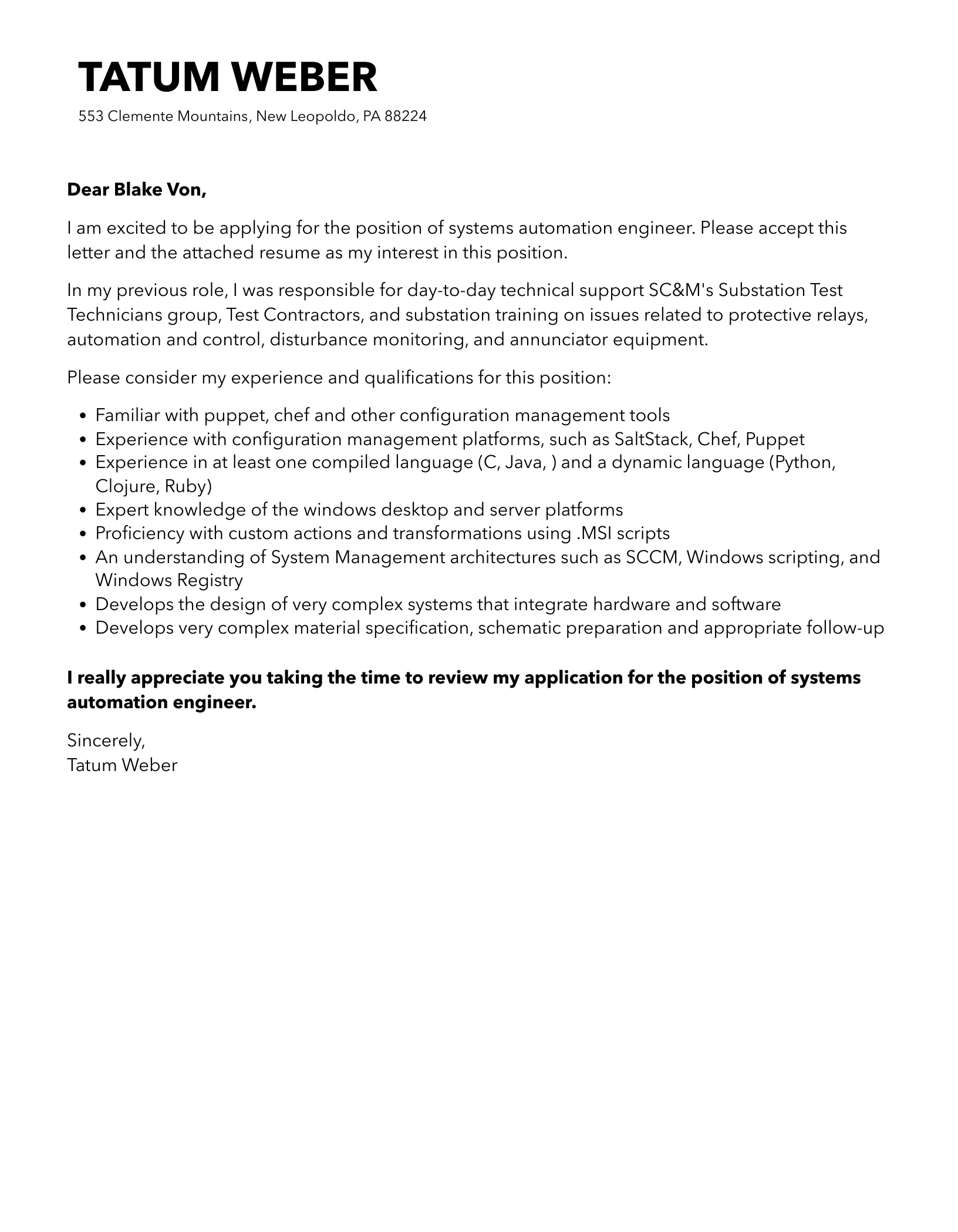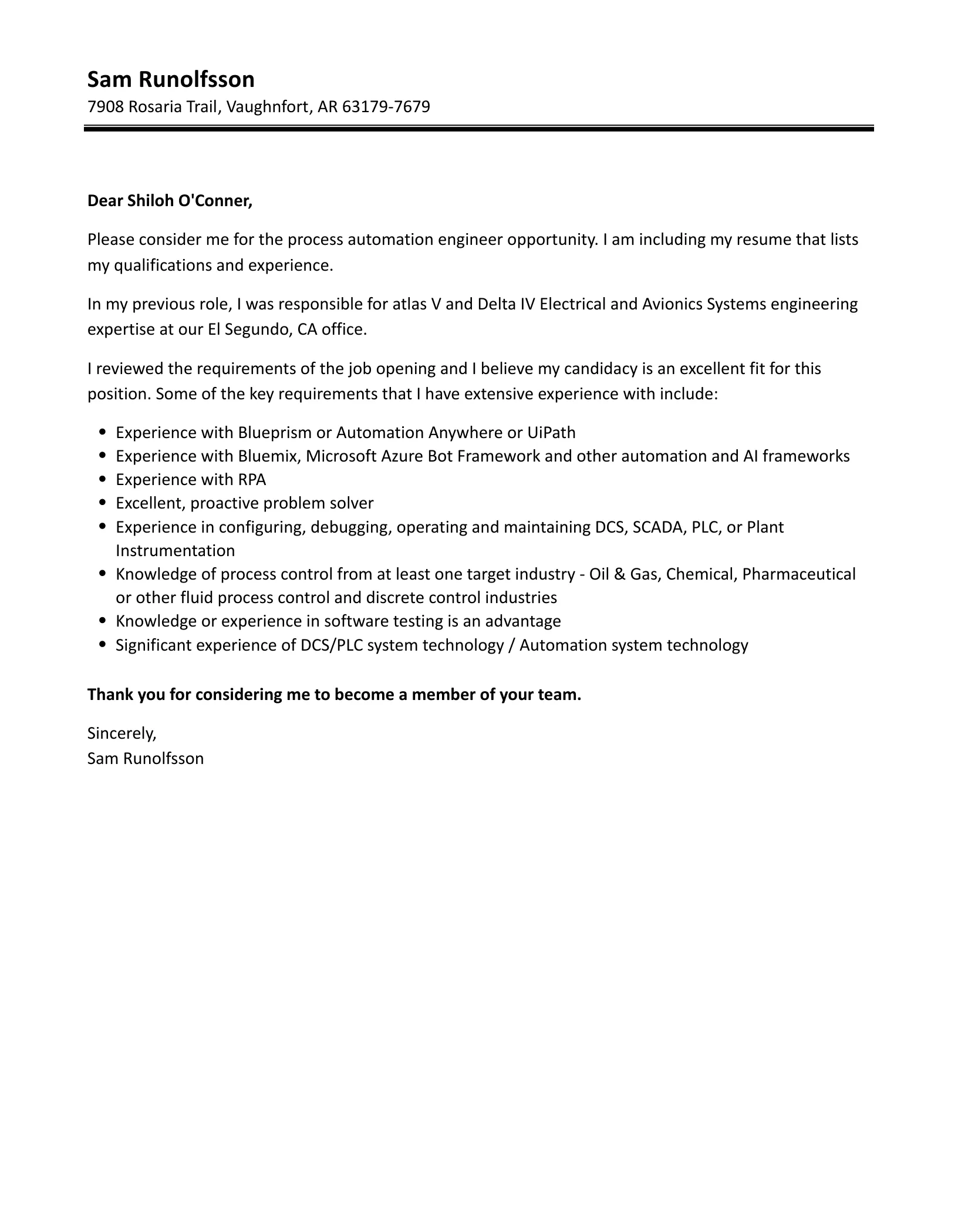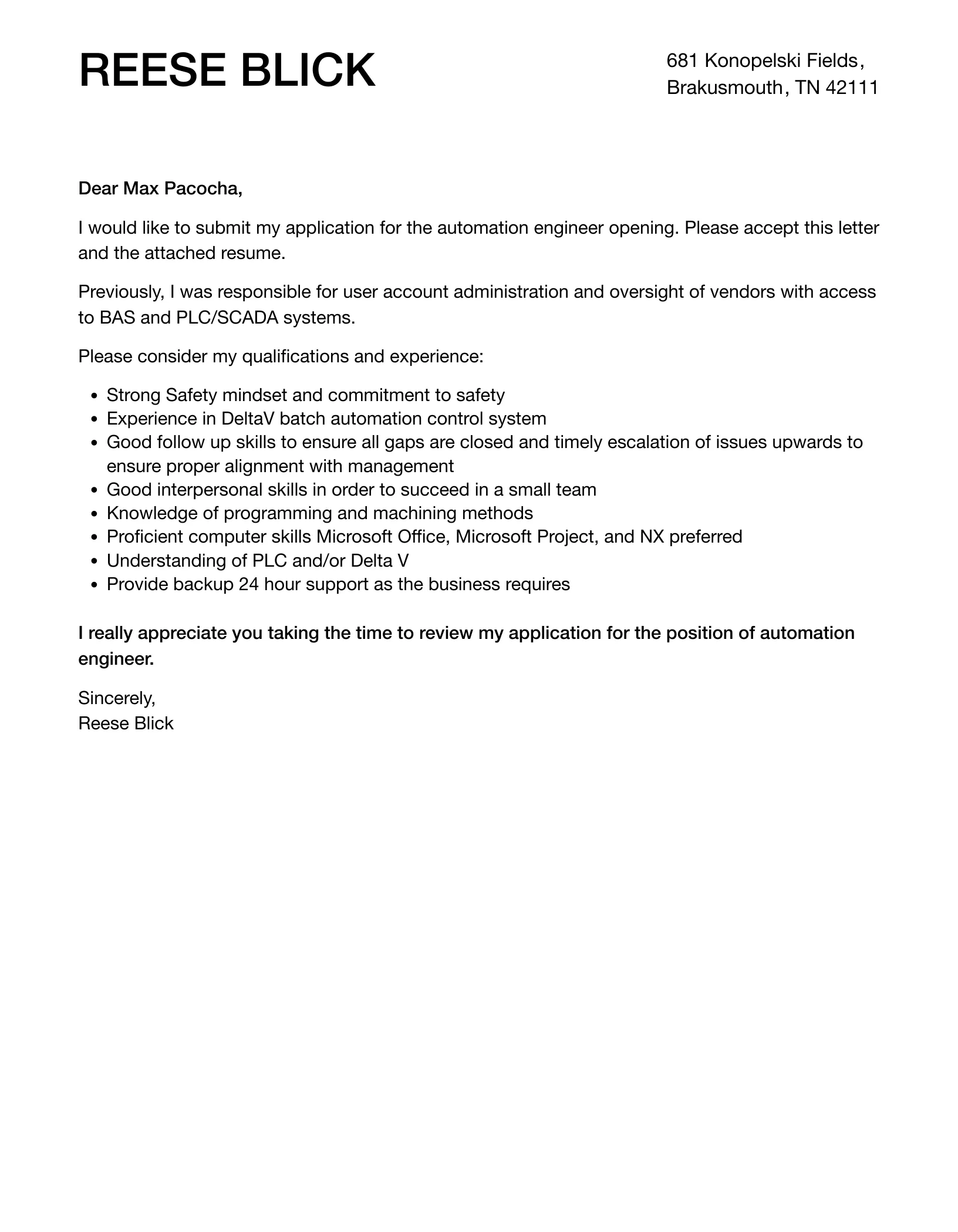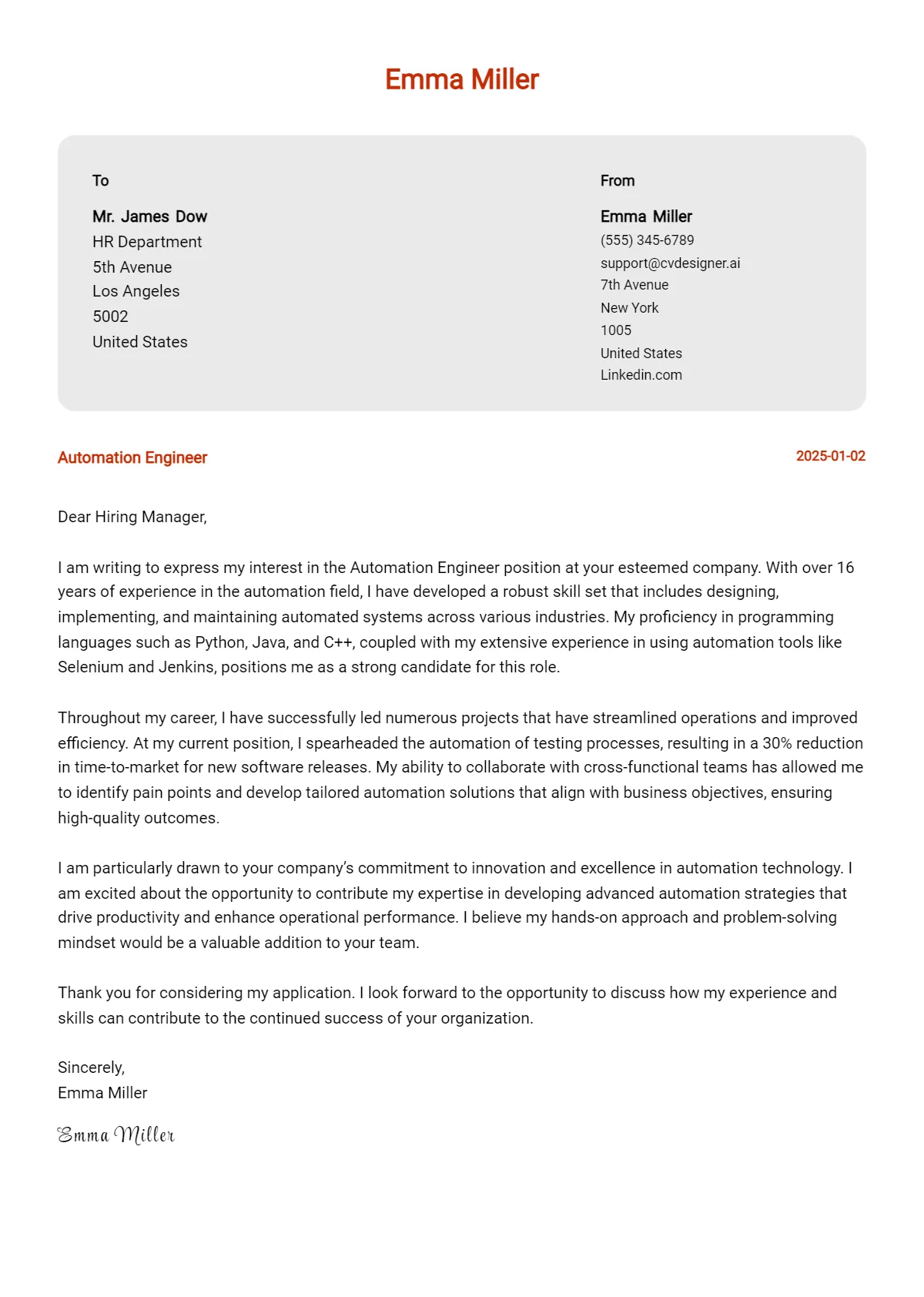Automation Engineer: Top 5 Skills to Master
The field of automation engineering is rapidly evolving, presenting exciting opportunities for skilled professionals. To thrive in this dynamic environment, engineers need to develop a diverse skill set. This article highlights the top 5 skills that automation engineers should master to excel in their careers, covering everything from programming and control systems to robotics and data analysis. By focusing on these key areas, aspiring and current automation engineers can significantly enhance their capabilities and increase their value in the job market. Mastering these skills will not only improve your job prospects but also allow you to contribute more effectively to the advancement of automation technologies across various industries. Staying current with these skills ensures you’re well-prepared for the future of automation engineering and the challenges it presents.
Programming Proficiency
Programming proficiency is a cornerstone skill for automation engineers. The ability to write, debug, and optimize code is essential for controlling automated systems. This involves understanding various programming languages and applying them to solve real-world automation problems. From designing control algorithms to integrating different automation components, programming skills enable engineers to create efficient and reliable systems. Mastery of programming also allows for customization and flexibility, ensuring that automated systems can adapt to changing requirements and perform optimally. Engineers need to continually update their programming skills to stay current with the latest technologies and methodologies in automation.
Proficiency in Coding Languages

Automation engineers should be proficient in several coding languages relevant to their work. Languages like Python are increasingly popular for their versatility and ease of use in scripting, data analysis, and machine learning applications. C/C++ is often used for low-level control and embedded systems programming, which is crucial for real-time control applications. Structured Text (ST) and Ladder Logic (LD) are specialized languages used in Programmable Logic Controllers (PLCs), which are the brains of many automated systems. Familiarity with these languages allows engineers to create, modify, and troubleshoot the code that drives automated processes. Understanding the strengths and weaknesses of each language is critical for selecting the right tool for the job and ensuring efficient system performance.
Understanding Software Development Lifecycle (SDLC)
A strong understanding of the Software Development Lifecycle (SDLC) is vital for automation engineers. The SDLC provides a structured framework for developing, testing, and deploying software. This involves phases like requirements gathering, design, implementation, testing, deployment, and maintenance. Knowing how to apply SDLC principles ensures that software projects are well-managed, meet specifications, and are delivered on time and within budget. Understanding the SDLC also helps engineers collaborate effectively with software developers, project managers, and other stakeholders. Engineers should understand the importance of version control, code reviews, and documentation to produce robust and maintainable automation systems.
Control Systems Expertise
Control systems expertise is another critical skill for automation engineers. This involves a deep understanding of how to design, implement, and maintain control systems that regulate processes and equipment. From feedback control loops to advanced control strategies, engineers need to be able to select and configure the appropriate control systems for specific applications. Control systems expertise ensures that automated systems operate safely, efficiently, and reliably. This includes knowledge of sensors, actuators, and communication protocols used in industrial automation. Engineers must understand the fundamentals of process control to optimize system performance, improve product quality, and minimize waste.
PLC Programming and Troubleshooting

Programmable Logic Controllers (PLCs) are the workhorses of industrial automation. Automation engineers must possess strong PLC programming and troubleshooting skills. This includes the ability to write PLC programs using languages like Ladder Logic, Function Block Diagram (FBD), and Structured Text (ST). Engineers need to understand how to configure PLC hardware, interface with other devices, and design control strategies. Troubleshooting skills are equally important; being able to diagnose and fix issues in PLC programs and hardware is essential for minimizing downtime and maintaining system performance. Comprehensive knowledge of different PLC platforms and programming software is crucial for success.
HMI/SCADA System Knowledge
Human-Machine Interface (HMI) and Supervisory Control and Data Acquisition (SCADA) systems are integral to modern automation. HMI systems provide operators with a graphical interface to monitor and control automated processes, while SCADA systems provide a centralized platform for monitoring, controlling, and data acquisition across large-scale operations. Automation engineers should be proficient in designing, configuring, and troubleshooting HMI/SCADA systems. This involves creating user-friendly interfaces, implementing alarm management, and integrating with PLCs and other devices. Understanding communication protocols and data handling is also crucial. Expertise in HMI/SCADA systems enables engineers to create effective monitoring and control solutions.
Robotics and Automation
Robotics and automation are becoming increasingly intertwined, making this a vital skill area for automation engineers. The ability to work with robots, including programming, integrating, and maintaining them, is essential for automating complex tasks. Robotics expertise allows engineers to design and implement flexible and efficient automation solutions across various industries, from manufacturing to logistics. This includes understanding robot kinematics, dynamics, and control systems. Engineers should also be familiar with the latest robotic technologies and applications to remain competitive.
Robotics Programming and Simulation

Robotics programming and simulation skills are indispensable for automation engineers. Proficiency in robot programming languages, such as RAPID, KRL, or others, allows engineers to create and modify robot programs to perform specific tasks. Simulation software, such as RobotStudio or Roboguide, allows engineers to model and test robot cells before physical implementation, reducing risks and optimizing performance. Through simulation, engineers can identify potential problems, optimize robot paths, and estimate cycle times. These skills enable engineers to design efficient robotic systems that meet the needs of the specific application, from pick and place to welding and assembly.
Integration of Robotic Systems
Integrating robotic systems into existing or new automation setups is a key skill. This includes connecting robots with other automation components, such as PLCs, sensors, and conveyors, to create a cohesive and efficient system. Engineers need to understand communication protocols, hardware interfaces, and safety requirements to ensure seamless integration. This involves designing robot cells, selecting the appropriate end-of-arm tooling (EOAT), and programming the robot to interact with other devices. Successful integration requires a holistic understanding of the entire automation process and the ability to troubleshoot any issues that may arise during the implementation phase. The goal is to optimize the performance and reliability of the integrated system.
Data Analysis and Problem-Solving
Data analysis and problem-solving skills are increasingly important in automation engineering. As automated systems generate vast amounts of data, engineers need to be able to analyze this data to identify trends, optimize processes, and improve system performance. This involves using statistical analysis, data visualization, and other techniques to extract meaningful insights from the data. Problem-solving skills allow engineers to diagnose and resolve issues that arise in automated systems, from software bugs to hardware malfunctions. A methodical approach to problem-solving, combined with a strong understanding of the underlying processes, is crucial for maintaining system reliability and efficiency.
Data Collection and Analysis Techniques

Automation engineers should be proficient in data collection and analysis techniques. This includes understanding how to collect data from various sources, such as sensors, PLCs, and HMI/SCADA systems. They should be able to use data analysis tools, such as Excel, Python libraries (like Pandas and NumPy), and specialized software, to analyze the collected data. Techniques like statistical process control (SPC), regression analysis, and time series analysis are often used to identify trends, patterns, and anomalies. The ability to interpret data and use it to make informed decisions is critical for process optimization, predictive maintenance, and continuous improvement in automation systems.
Process Optimization and Efficiency
Process optimization and efficiency are primary goals of automation. Automation engineers must use data analysis to identify areas for improvement in automated processes. This might involve optimizing cycle times, reducing waste, or improving product quality. They should be able to apply various techniques, such as lean manufacturing principles and Six Sigma methodologies, to optimize processes. By analyzing data and making data-driven decisions, engineers can help organizations achieve significant gains in efficiency and productivity. Regular monitoring and analysis of key performance indicators (KPIs) are essential for ensuring continuous improvement and maintaining optimal performance.
Communication and Teamwork
Effective communication and teamwork are essential skills for automation engineers. Automation projects often involve collaboration with various stakeholders, including other engineers, project managers, operators, and vendors. Clear and concise communication is crucial for ensuring that everyone understands the project goals, requirements, and progress. Teamwork skills are necessary for working effectively with cross-functional teams, sharing knowledge, and resolving conflicts. Engineers need to be able to present technical information clearly, write comprehensive reports, and participate in meetings. These skills are fundamental to success in the collaborative environment of automation projects.
Collaboration with Cross-Functional Teams

Automation projects involve cross-functional teams with diverse expertise. Engineers need to collaborate effectively with these teams to ensure project success. This requires understanding the roles and responsibilities of each team member and being able to communicate effectively across different disciplines. Engineers must be able to listen to and incorporate feedback from other team members, such as mechanical engineers, electrical engineers, and IT specialists. Good collaboration involves sharing information, coordinating tasks, and resolving conflicts. Successful collaboration leads to more efficient project execution and improved outcomes.
Effective Communication Skills
Effective communication skills are vital for an automation engineer. This includes the ability to clearly convey complex technical information to both technical and non-technical audiences. Engineers need to be proficient in writing reports, presenting findings, and creating documentation. They should also be skilled at active listening, asking clarifying questions, and providing constructive feedback. Strong communication skills ensure that everyone involved in a project is well-informed and that project goals are understood. Being able to explain technical concepts in a simple and understandable way builds trust and promotes collaboration within the team.
Conclusion
Mastering the top 5 skills highlighted in this article is essential for any automation engineer looking to excel in their career. From programming proficiency and control systems expertise to robotics and automation, data analysis and problem-solving, and communication and teamwork, these skills provide a solid foundation for success. By continually developing these skills, automation engineers can not only increase their value in the job market but also contribute significantly to the advancement of automation technologies. The future of automation is bright, and those who invest in their skill development will be well-positioned to thrive in this dynamic and rewarding field. Embrace these skills, stay curious, and remain committed to continuous learning to build a successful career.
